
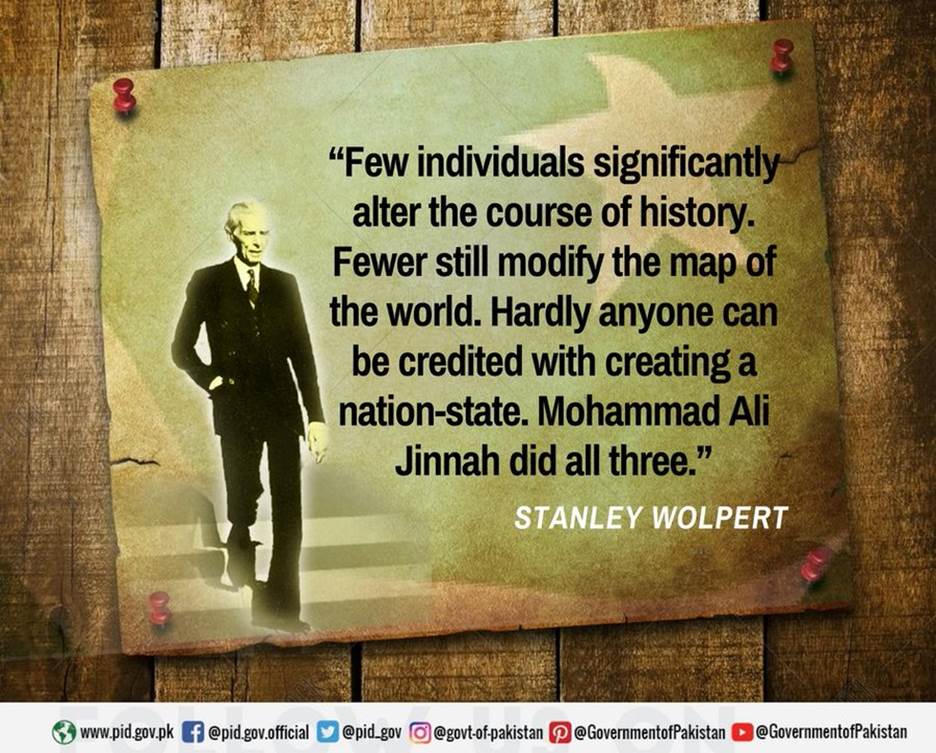
March 23rd: Pakistan, People, and Founder
By Akhtar Mahmud Faruqui
Editor
Pakistan Link
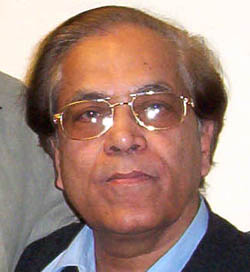
March 23rd, 1940 marks a singular milestone in the history of Muslims of South Asia. It was a truly momentous day. At Lahore's Manto Park, Quaid-i-Azam Mohammad Ali Jinnah rejected a permanent communal minority status for Indian Muslims. Instead, he demanded full-fledged nationhood and a separate country for Muslims.
It was a defining moment. His voice resonated in the sprawling Park to the accompaniment of hushed silence of the overflowing assemblage. “The Musalmans are not a minority. The Musalmans are a nation by any definition. The problem in India is not of an inter-communal but manifestly international character, and it must be treated as such… the only course open to us all is to allow the major nations separate homelands.”
The Quaid speaks in his characteristic clipped British accent. His King's English is beyond the comprehension of the teeming multitude. But they are all-attention. He enjoys their trust as a champion of Muslim cause.
According to Professor Stanley Wolpert, the speech was “truly a stellar performance, worthy of the lead role he alone could command.” The Times of India ungrudgingly conceded that “such was the dominance of his personality that, despite the improbability of more than a fraction of his audience understanding English, he held his hearers and played with palpable effects on their emotions.”
Yet, the speech marked a paradox. In 1916, Mr Jinnah was hailed as the Ambassador of Hindu-Muslim unity, a supporter of Indian nationalism. A quintessential Victorian gentleman, the Lincoln Inn barrister was steeped in European thought. He studied law in London, admired Prime Minister William Gladstone and Abraham Lincoln, and was regarded as the Muslim world's answer to Thomas Jefferson. What transpired in the intervening period for his change of mind to alter course?
The Pakistan Resolution of 1940 and its subsequent adoption by the Muslim League was an answer to the Indian National Congress's consistent attempts to deny the Muslim community a political entity of their own. The crux of the issue, according to eminent historian Professor Shariful Mujahid, was whether India was a uni-cultural, bi-cultural or multi-cultural state.
The controversy began on September 18, 1936, when Pandit Jawaharlal Nehru made the outrageous claim, "The real contest is between two forces - the Congress which represents the will to freedom of the nation, and the British Government in India and its supporters who oppose this urge and try to suppress it. Intermediate groups, whatever virtue they may possess, fade out or line up with one of the forces..."
Nehru's two-force dictum was not a stray declaration. Mr Jinnah's response to this onslaught came at the Calcutta Muslim League meeting. "I refuse to line up with the Congress. I refuse to accept this proposition. There is a third party in this country and that is Muslim India ... We are not going to be camp followers of any party," Jinnah declared.
The March 23rd Pakistan Resolution formally declared India as bi-national and bi-cultural. In August 1947, the sub-continent split into two countries - India and Pakistan.
Eighty-three years later, on this day, the stock-taking continues to reappraise the past in the light of the present. Ungrudgingly, the irritants are several and formidable. But the successes are many and furnish proof of a country on the march: Surely, the 1940-winter of despair seems to have given way to a spring of hope in the post-Independence Pakistan.
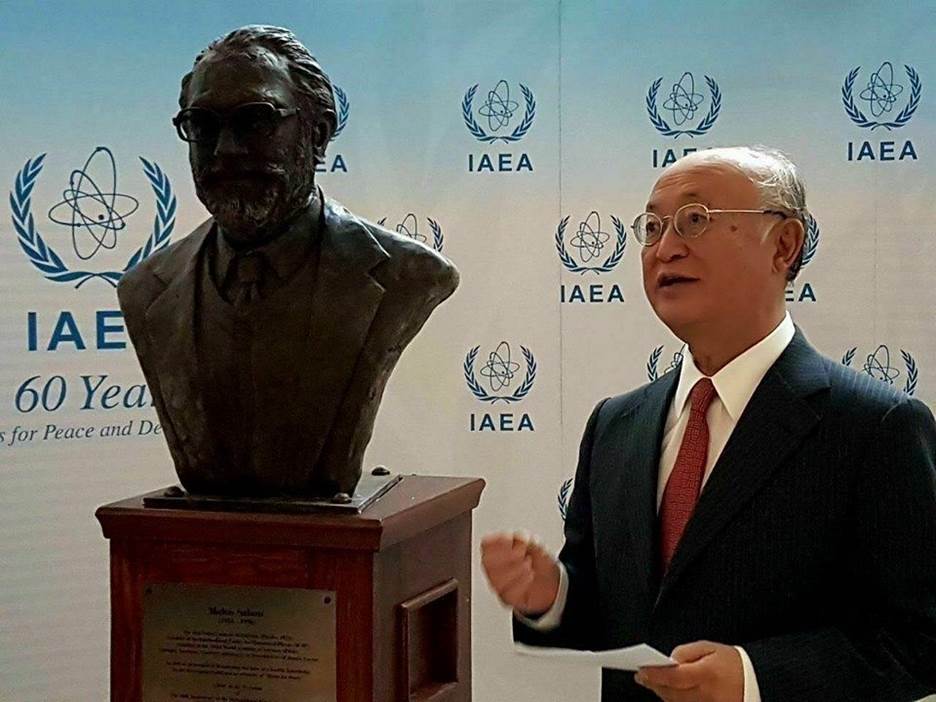
The statue of physicist Dr Abdus Salam – Pakistan’s first Nobel Prize winner – is unveiled at the International Atomic Energy Agency (IAEA) Headquarters in Vienna by IAEA Director General Yukiya Amano
The United Nations has named its prestigious research institute in Italy as the Salam International Center for Theoretical Physics; Pakistani metallurgists soil their hands with indigenous uranium to fabricate fuel; nuclear engineers safely draw energy from the heart of the atom, and Alhamdulillah, without a Chernobyl or Three Mile Island mishap; women excel in the role of Nobel Prize winners, prime ministers, ambassadors, Oscar-winning producers, fighter pilots, and diplomats irrepressibly raising their voice at the United Nations for the Kashmir
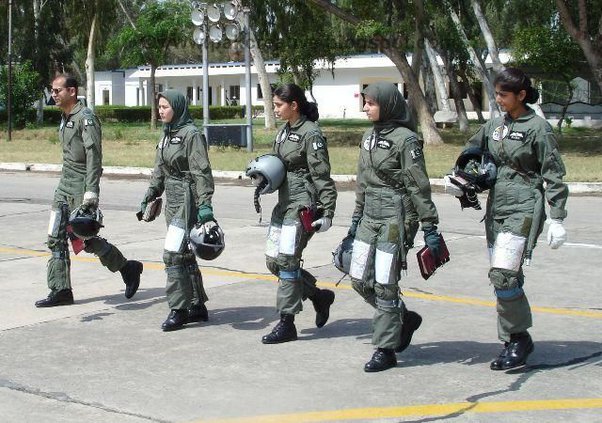
Women excel in the role of Nobel Prize winners, prime ministers, ambassadors, Oscar-winning producers, fighter pilots, and diplomats irrepressibly raising their voice at the United Nations for the Kashmir cause
cause; Dawn, Herald, The Express Tribune, Daily Times and Pakistan Link conform to quintessential journalistic excellence; a multiplying fraternity of TV channels presents the national perspective on various issues;
LUMS, NUST, GIK, IBA and other universities impart momentum to the diffusion of higher technical skills in the country; the Supreme Court boldly plays its role in bringing plunderers to justice; Sadequain paints more
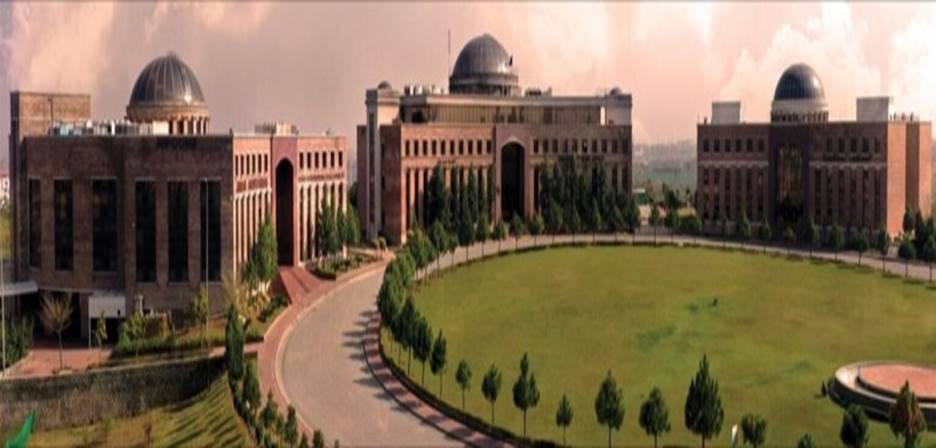
NUST, LUMS, GIK, IBA and other universities impart momentum to the diffusion of higher technical skills in the country
murals than Michelangelo and Diego Rivera combined; Arfa Abdul Karim Randhawa becomes the youngest Microsoft Certified Professional at 9.
Last, but not least, Pakistan has come a long way in defeating terrorism. The Pakistan Army moves into the northern Waziristan tribal region, an area that was treated as no man’s land for centuries by the British, India and the Russian Empire, and stamps out extremists. The soldier-to-officer casualty ratio at 12 to 1 is the highest in military operations since 9/11.
The social transformation accompanying these successes is the focus of Western media: ‘American fast-food and Western fashion outlets take Pakistan’s growing middle class by storm defying stereotypes about a conservative Muslim country plagued by violence…New malls offer wealthy clientele the chance to lunch on an American burger, buy French cosmetics, shop for cocktail dresses, sip an afternoon cappuccino or wolf down a cinnamon roll.’
Lahore, according to newspaper accounts, fires the imagination of writers, artists and thinkers during the annual literary festival when large crowds fill the halls of the Alhamra Art Center to listen to lilting recitals of Urdu and English poetry, and to delight in classical dance and music. Luminaries from Pakistan's growing club of young internationally-renowned writers turn out to read from their novels, along with eminent authors from abroad like British historian William Dalrymple.
Across an ocean and a continent, the creative impulse gathers steam. Dr Mark Salman Humayun, grandson of the Quaid's personal physician Dr Ilahi Bakhsh and co-director of the USC Eye Institute in Los Angeles, receives America's highest award for technology achievement from President Obama; Pakistani-Americans in the Silicon Valley earn the title of a 'model minority', and win accolades for contributing to what Erik Brynjolfsson and Andrew McAfee describe as "The Second Machine Age". A Forbes story acknowledges that Pakistan is among a
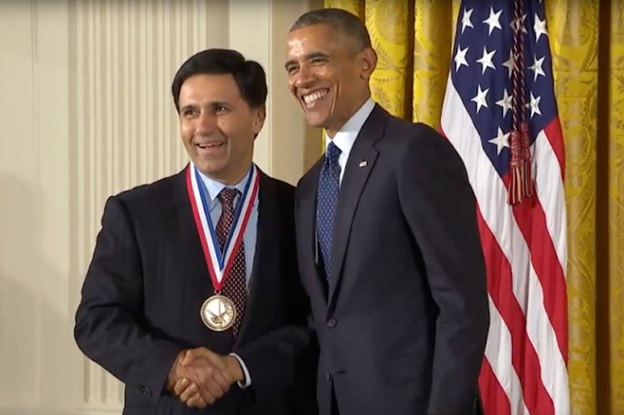
Dr Mark Salman Humayun, grandson of the Quaid's personal physician Dr Ilahi Bakhsh and co-director of the USC Eye Institute in Los Angeles, receives America's highest award for technology achievement from President Obama
dozen countries which are described as birthplaces of some of the most successful Silicon Valley companies. Academy Award winning Hollywood hits Frozen, Life of Pi and The Golden Compass use computer-generated imagery by Pakistani-American Mir Zafar Ali who goes on to win Oscar statuettes for "Best Visual Effects". Dr Nergis Mavalvala, Pakistani-American astrophysicist, is accorded recognition as an outstanding MIT professor and member of the Nobel Prize winner LIGO team. Jehanzeb Akhtar Faruqui is featured in Forbes Magazine as a shining entrepreneurial success in the post-Covid era.
In the herculean task of cementing inter-faith bonds for a better understanding of Islam, Dr Akbar Ahmed, Ibn Khaldun Chair of Islamic Studies at American University, Washington, DC, has made his mark. “Functioning between both worlds, through his writing and broadcasting,” Wikipedia testifies, “Ahmed has attempted to bridge the Muslim-West world divide and encourage communication between both groups”.
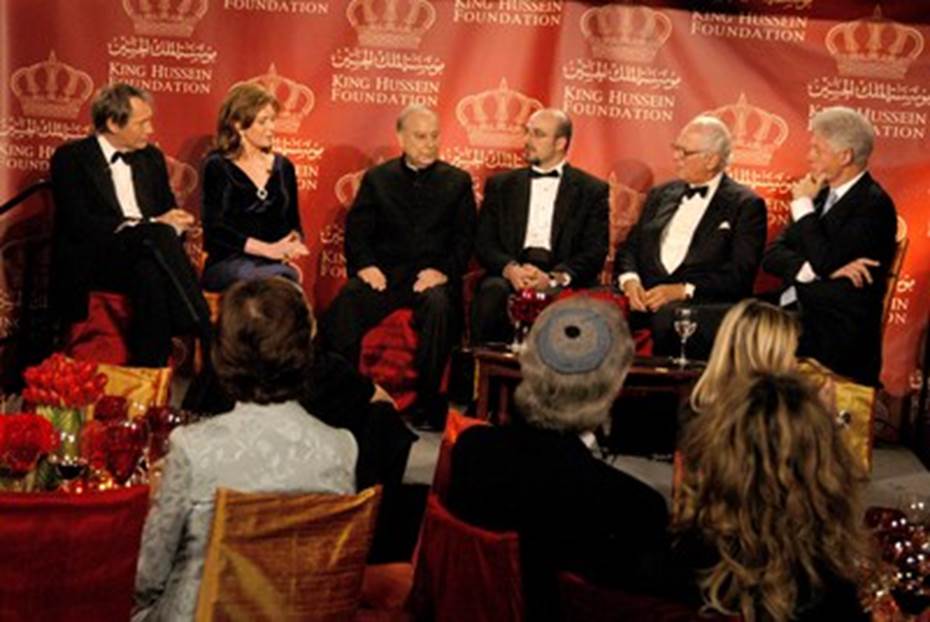
From left: Charlie Rose, Queen Noor of Jordan, Dr Akbar Ahmed, Dr Ghassan Salame, Sir Evelyn de Rothschild, and Pres Bill Clinton
His work of dedicated scholarship – based on his journeys into the United States and Europe - and role as advisor on Islam to President George W. Bush and King Charles, as well as lectures in places such as the US Congressional retreat in Greenbrier, the National Defense University in Washington DC, the State Department and the House of Lords in London, have been well received. Hence, the burning desire of the late Barry Hoffman, Hon Consul General of Pakistan in Boston, who symbolized Jewish-Muslim friendship, “If there were only 1,000 Akbar Ahmeds! It would be such a wonderful world.”
Quite a few Pakistani-American entrepreneurs impact the American scene - Safi Qureshey, Najeeb Ghauri, Pervaiz Lodhi, Dr Sohail Masood, Dr Sana Khan, Shahid Khan, Zia Chishti, Dr Hasan and Seeme Gul Hasan, et al. – and are seized of the home country’s developmental needs. So are several groups - APPNA, Pak Pac, HDF, NEDIANS, DIL, TCF, Saba Homes, MGYW, COPAA, PAC, COP, etc. – that supplement the entrepreneurs’ strivings.

Several active groups - APPNA, Pak Pac, HDF, NEDIANS, DIL, TCF, Saba Homes, MGYW, COPAA, PAC, COP, and many more - work devotedly in support of the home country
Such successes are in consonance with the vision of the founder, Quaid-i-Azam Mohammad Ali Jinnah, though some disconcerting trends are a cause of anxiety. Dismal governance, along with larcenous leadership, today has certainly bred despondency.
In this troubled era plagued by polarization and calling for tolerance, Pakistanis need to heed Jinnah's first speech to the Constituent Assembly delivered on 11 August 1947. It is a seminal address in the history of the country.
"You are free; you are free to go to your temples, you are free to go to your mosques or to any other place of worship in this State of Pakistan. You may belong to any religion or caste or creed - that has nothing to do with the business of the State . . . We are starting in the days when there is no discrimination, no distinction between one community and another, no discrimination between one caste or creed and another. We are starting with this fundamental principle that we are all citizens, and equal citizens, of one State. "
One hopes today's irksome problems prove solvable with time. Faiz Ahmad Faiz's famous lines
Ye daagh daagh ujaalaa, ye shab-gaziida sahar
Vo intizaar thaa jis-kaa, ye vo sahar to nahiiN,
Ye vo sahar to nahiiN jis-kii aarzu lekar
Chale the yaar ke mil-ja`egi kahiiN na kahiN …
are often hummed to express collective anguish. Besides being a poet, Faiz was an eminent journalist and respected in this role as Editor of Pakistan Times. He wrote many insightful pieces. Little is known of an editorial that he wrote on the dream of Pakistan on the eve of March 23rd. It is an edifying review of conditions then that are strikingly similar to those of contemporary Pakistan – wily individuals frustrating the strivings and march of the silent majority. The concluding paragraph sheds pessimism and breeds optimism, identically as do conflicting conditions and individuals in Pakistan society today: He sums up his editorial thus:
“There is nothing to be discouraged about. Individuals, many of them distinguished in rank and tested in previous struggles, failed us miserably in the fight for Pakistan. The failures that we have witnessed and shall continue to witness in the fight to realize the dream that Pakistan stands for have also been and will be failures of individuals. Pakistan came in spite of Khizar, and its people will progress in spite of his successors.”
Faiz was wholly right.
On this momentous day of reckoning we should also remember that Americans salute Lincoln for saving the union; they don’t retrospectively blame him for the damage others inflicted on America.
The foremost challenge today is to inspire national self-belief and self-esteem, and to stage a comeback on the international stage, to rediscover the spirit and vision which animated the Pakistan Movement and the founding of the nation.
Abhii giraanii-e-shab meN kamii nahiiN aa'ii,
Najaat-e-diidaa-o-dil ki ghaRii nahiiN aa'ii;
Chale-chalo ke vo manjil abhii nahiiN aa'ii

